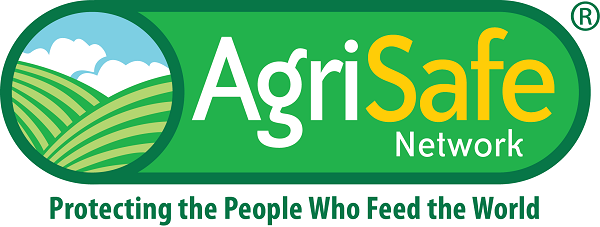AgriSafe Learning
¡Basta! Working Together to Prevent Sexual Harassment in the Agricultural Workplace
-
Register
- Non-member - Free!
- Member - Free!
Summary:
Workplace sexual harassment (WSH) in agriculture is a persistent and pervasive problem that threatens employees’ safety and well-being and damages organizational climate and trajectory. Until recently, tailored trainings about WSH and resources specific to the agricultural sector and its audiences were lacking. Over the past several years, researchers and partners with the Pacific Northwest Agriculture Safety and Health (PNASH) Center in Washington State have worked with a number of agricultural and industry stakeholders (e.g. farmworkers, growers, government leaders and agencies, legal experts, advocates, etc.), to explore the nature of WSH and to develop relative education, resources, and training. While education alone will not stop WSH, it’s an important strategy in a multi-faceted approach to prevention. In this webinar, participants will be introduced to The Basta! Prevent Sexual Harassment in Agriculture training, toolkit, and video. The Basta! training uses an evidence-based, community engaged approach to help employees, HR staff, and growers prevent and address sexual harassment in the agricultural workplace.
Following the session, the learner will be able to:
a. Summarize the scope and nature of workplace sexual harassment in agriculture.
b. Examine multi-level factors that influence sexual harassment in agriculture.
c. Review employer’s and employees’ rights and responsibilities in reporting and addressing workplace sexual harassment.
d. Share effective strategies and interventions that can reduce the threat of workplace sexual harassment and strengthen protocols and reporting mechanisms for employee-victims.
Live interpretation in Spanish will be available for this session.
Jody Early, Ph.D., M.S., MCHES
Associate Professor, Faculty Coordinator, Health Education and Promotion Minor, School of Nursing and Health Studies, University of Washington Bothell
Dr. Jody Early is an Associate Professor of Health Studies and an affiliate faculty in Gender, Women and Sexuality Studies and the Pacific Northwest Agriculture Safety and Health Center at the University of Washington Bothell and Seattle campuses. She currently serves as lead faculty for the Health Education and Promotion minor in the School of Nursing and Health Studies and is a former Associate Director of UW Bothell’s Teaching and Learning Center.
Over the last 25 years, Jody has dedicated her life to improving health equity and higher education. A Master Certified Health Education Specialist (MCHES), Jody’s research, teaching and praxis largely explore structural and social ecological factors that impact the health and well-being of individuals and populations, especially among women and Latinx communities. Her work, both in and outside of the academy, has allowed her to collaborate with communities to design, implement, and evaluate, culturally tailored health education interventions and strategies, and to involve her students in the process.
Dennise Drury, MPH
Outreach and Education Specialist
Pacific Northwest Agriculture Safety and Health Center (PNASH)
Dennise Drury is the Outreach and Education Specialist at the Pacific Northwest Agriculture Safety and Health Center (PNASH) She has a background in environmental science and a passion for increasing the inclusivity and accessibility of science and research for Latino communities. In her current role, she works in collaboration with researchers, community organizations, and agricultural stakeholders to coordinate the Center's communications and educational activities. She has a passion for developing and evaluating workplace interventions to improve the health and safety of farmworkers. She is currently working on developing an evaluation of the Basta! Prevent Sexual Harassment in Agriculture worksite training and toolkit created in collaboration with the agricultural community.
Mike Gempler
Executive Director
Washington Grower's League
Mike Gempler is the Executive Director of the Washington Grower’s League. He received a bachelor’s degree in agriculture from Ohio State University and a master’s degree in agricultural economics from the University of Wyoming. Mike is also a graduate of the Washington Agriculture and Forestry Leadership Program and served as a past-president of the National Council of Agricultural Employers (NCAE), based in Washington, DC.
Alyson Dimmit Gnam
Attorney
Northwest Justice Project
Alyson Dimmitt Gnam is an attorney in the Farmworker Unit at the Northwest Justice Project in Washington State. She represents agricultural employees in sexual harassment claims, as well as discrimination, labor trafficking, and concerted activity cases. She is a member of the steering committee of the sexual harassment peer training project of the BASTA Coalition.
Key:
Quick Search
Technical Difficulties
Submit a help ticket if you need technical assistance.
Having Computer Issues? Please check your internet browser and security settings to allow permissions for this website. Browsers: Microsoft Edge version 40 or higher; Chrome version 60 or higher, Firefox version 50 or higher; or Safari version 10.1 or higher. We recommend using Google Chrome or Firefox as your browser.
